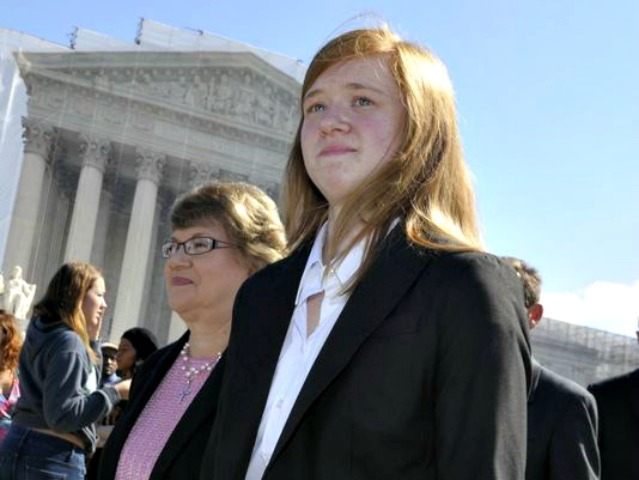In the education case of Fisher v. University of Texas, at least four Supreme Court justices appear ready to strike down affirmative action.
The U.S. Supreme Court, in a pivotal test of affirmative action in education, will hear arguments on December 9 for the second time that Abigail Noel Fisher was discriminated against by the University of Texas.
A blanket ruling outlawing racial and ethnic preferences entirely would follow Chief Justice John Roberts’s 2007 dictum, “The way to stop discrimination on the basis of race is to stop discriminating on the basis of race,” from the opinion in the 4-1-4 vote case of Community Schools v. Seattle School District No. 1.
The Court at the time found the public high school district’s racial tiebreaker plan unconstitutional under the Equal Protection Clause of the Fourteenth Amendment.
Justice Clarence Thomas has steadfastly supported a ban on affirmative action, but swing voter Justice Anthony Kennedy has consistently upheld the validity of the theory of affirmative action, even if he has voted to strike down specific practices as unconstitutional.
Texas already uses a technique that should avoid any discrimination by accepting applicants who are in the top 10 percent of any accredited high school operated in the state. Given there are plenty of poor schools dominated by minorities, that should have guaranteed a high percentage of minority students have the same chance of admission as white students from wealthy school districts.
But Texas applicants who don’t make it in under the top 10 percent program are evaluated through a second, “holistic review” that is the focus of the case.
The Supreme Court could have struck down holistic review the first time Fisher v. University of Texas came to the court. But Justice Kennedy sent the case back to the Fifth Circuit with instructions to apply stricter scrutiny to the details, according to Forbes.
The Fifth Circuit approved the University of Texas’s holistic review a second time. Abigail Noel Fisher then appealed again, setting the stage for the potential end of affirmative action.
The arch-supporter of affirmative action on the Supreme Court is expected to be Justice Sonia Sotomayor, a child of Puerto Rican immigrants who won acceptance and a full scholarship to Princeton based at least partially on affirmative action. In Schuette v. Coalition to Defend Affirmative Action, she stated: “Race matters because of the slights, the snickers, the silent judgments that reinforce that most crippling of thoughts: ‘I do not belong here.’”
Justice Kennedy, in the first Fisher v. University of Texas, wrote, “The reviewing court must ultimately be satisfied that no workable race neutral alternatives would produce the educational benefits of diversity.”
But the potential constitutional flaw in the University of Texas affirmative action program is that it is so opaque that admission officials cannot define what role race played in any specific admission to advance the “educational benefits of diversity” for all students.
Texas admissions officers grade individual students on their academic performance and test scores. But they also grade on “personal achievement,” that includes race. The two scores are then averaged to determine competitive rank for acceptance.
Andrew Grossman, an associate at Baker Hostetler in Washington DC, told Forbes that, “They’ve designed this program quite deliberately to be unaccountable and non-transparent.” He added, “The hallmark of strict scrutiny is the court has to satisfy itself the program is narrowly tailored and achieves the government’s objectives.”
This post has been updated.

COMMENTS
Please let us know if you're having issues with commenting.